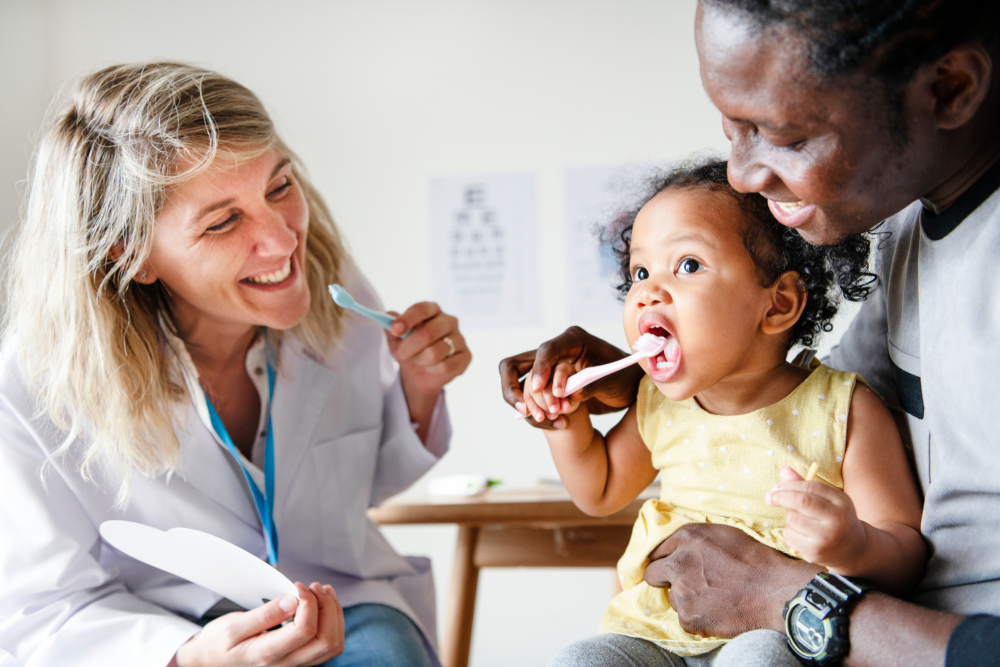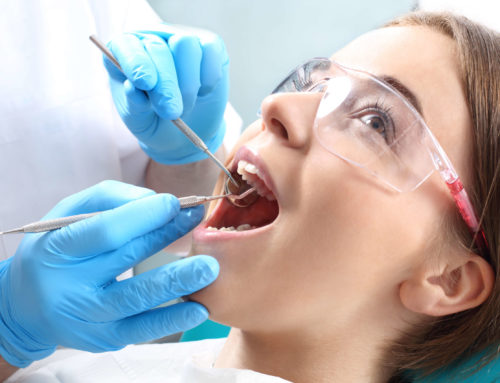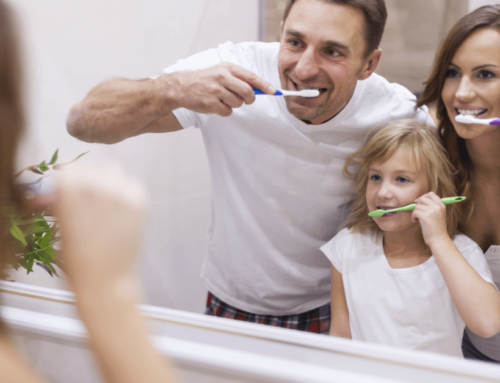
Did you know that over 40% of children already have cavities by the time they start kindergarten? Many parents might be surprised because they think dental problems come later, but tooth decay can actually begin as soon as your baby’s first tooth appears. That’s why early dental visits are so important—they help keep your little one’s smile healthy for life.
Experts like the American Academy of Pediatric Dentistry, the American Dental Association, and the Centers for Disease Control and Prevention all agree: your child should have their first dental visit by their first birthday or within six months after their first tooth comes in. This isn’t just a random rule—it’s based on lots of research showing that early visits bring many benefits beyond just checking for cavities.
Starting dental visits early helps prevent problems, supports healthy growth, and teaches good habits that last a lifetime. When parents understand these benefits and take action early, they’re giving their child the best chance for a bright, healthy smile and positive experiences at the dentist.
Why Early Dental Visits Matter for Your Child’s Health
Your child’s oral health is closely connected to their overall well-being, even from a very young age. Tooth decay, also called dental caries, is actually the most common chronic disease in young children—more common than asthma or hay fever! Right now, over 21% of children aged 2-5 in the U.S. already have cavities, with higher rates in some communities.
If dental problems aren’t treated early, they can cause pain that makes it hard for kids to eat, sleep, or speak properly. This can impact their growth, learning, and how they get along with others. In serious cases, untreated cavities can lead to infections that spread beyond the mouth.
Baby teeth might be temporary, but they play a very important role. They hold space for adult teeth to come in properly, help kids speak clearly, and support the shape of their face. Losing baby teeth too soon because of decay can cause nearby teeth to move out of place, which might mean braces or other treatments later on.
Early Childhood Caries (EEC)
There’s a condition called Early Childhood Caries (ECC) that affects children under 6 and can cause serious problems. Kids with ECC might have ongoing pain, infections, and sometimes need to be treated under anesthesia. Even more concerning, ECC can harm the adult teeth growing underneath baby teeth. Research shows that if baby teeth have decay, adult teeth are more likely to have problems too.
Many feeding habits that can cause tooth decay start in the first months of life. Baby bottle tooth decay happens when babies often drink sugary liquids like milk, formula, or juice, especially at bedtime or naptime. Without early guidance, these habits can lead to dental problems that last for years. That’s why seeing a pediatric dentist early on can help your child and their baby teeth have the best start possible.
When to Schedule Your Child’s First Dental Visit
Dental experts agree that your child’s first dental visit should happen by their first birthday or within six months after their first tooth appears. Most babies get their first tooth around 6 months old, so this usually means booking that first dentist appointment between 6 and 12 months of age.
This is a change from older advice that said to wait until age 2 or 3. In fact, the average age kids in the U.S. have their first dental visit is 2.6 years, which is much later than recommended. Studies show that waiting past age 1 almost doubles the chance of cavities and can lead to more complicated and expensive treatments later.
Research also shows that kids who start dental visits early tend to get regular care throughout childhood and have lower dental costs overall. This is especially important for children who might be at higher risk for cavities because of things like sugary snacks or not enough fluoride.
Even if your baby doesn’t have teeth yet, an early visit is still a good idea. We can check your baby’s mouth development, teach you how to clean their gums, talk about teething, and help your family get comfortable with dental visits before any worries start.
Benefit 1: Preventing Common Dental Problems
One of the biggest reasons to start dental visits early is to stop problems before they begin. Baby bottle tooth decay is one of the most common issues, but it can be prevented with the right care and advice.
This type of decay happens when kids’ teeth are often exposed to sugary drinks, especially when they go to bed with bottles of milk, formula, or juice. The sugars feed harmful bacteria in the mouth, which produce acids that can wear away tooth enamel.
During early visits, our pediatric dentists teach parents about safe feeding habits. They suggest giving only water in bottles after the first birthday, avoiding bedtime bottles with anything but water, and limiting sugary drinks during the day. Parents also learn how to clean their baby’s gums before teeth come in and how to start brushing gently once teeth appear.
Early dental visits also help spot any problems with how teeth are growing, like crowding or bite issues. Catching these early means simpler, less expensive treatments later on.
Even gum health is checked during these visits. While gum disease is rare in very young kids, Snograss dentists keep an eye out for any early signs of inflammation or infection so they can be treated quickly.
The gentle cleaning done during early visits removes plaque and helps build good oral hygiene habits. Our dentists at Snodgrass-King show parents how to brush properly and explain how oral care changes as kids grow.
Helpful Tips and Guidance for Parents
A big part of early dental visits is teaching parents how to care for their child’s teeth at every stage. Ask us to show you how to clean your baby’s teeth with a soft cloth or tiny toothbrush using just a rice-sized smear of fluoride toothpaste. For kids over three, this grows to a pea-sized amount.
Nutrition advice is also important. How often kids eat sugary or starchy foods matters more than how much they eat. We can help parents find healthier snack options and suggest ways to enjoy treats without harming teeth.
Our dentists also talk about pacifier use and thumb sucking. These habits are normal but can affect teeth and jaw growth if they last too long. On your next visit, ask us to provide tips on gently helping kids stop when the time is right.
Teething can be tough, so dentists share safe ways to soothe sore gums without increasing the risk of cavities. Snodgrass-King dentists explain which teething products to use and which to avoid.
Fluoride is another topic to consider. Your water may contain fluoride, and there is also the option to undergo fluoride treatments for kids starting as soon as they have teeth. We can answer questions about fluoride safety to help parents feel confident about protecting their child’s teeth.
Benefit 2: Creating Positive Dental Experiences
Starting dental visits early helps kids feel comfortable at the dentist and reduces the chance of dental fears later on. This is a huge benefit because dental anxiety can make it hard to get care as an adult.
Pediatric dentists are specially trained to work with children. They know how to talk to kids and use gentle techniques to keep them calm. Their offices, Snodgrass included, are often bright and fun, with kid-sized equipment and decorations that help children feel at ease.
Early visits let kids get used to the sights and sounds of the dental office before they have any real treatment. When visits happen during infancy, kids often see the dentist as a normal part of their lives, not something scary.
Parents also play a big role. Our dentists teach parents how to use positive words about the dentist and how to stay calm themselves. Since kids can pick up on their parents’ feelings, it’s important for grown-ups to stay relaxed and confident.
Tips for a smooth visit include scheduling appointments in the morning when kids are fresh and well-rested. Keeping routines normal and avoiding bribes helps kids see dental visits as a healthy habit, not a chore.
For very young children, dentists use a “knee-to-knee” exam position where the child lies across the parent’s lap. This makes the child feel safe while the dentist checks their mouth.
What to Expect at Early Dental Visits
Knowing what happens during your child’s first dental visits can help you prepare and feel more comfortable. These visits focus on gentle checkups and lots of parent education, rather than extensive treatment.
For more details about your child’s first dental visit, check out our blog here: Your Child’s First Dental Visit
Benefit 3: Establishing Regular Dental Care Habits
We recommend regular dental checkups every six months, starting with that first visit by age one. This schedule helps keep an eye on your child’s growth, catch problems early, and reinforce good oral hygiene.
Some kids who have a higher risk for cavities might need to visit more often, every three or four months, until their teeth and gums are healthier. These extra visits help dentists provide closer care and support.
Having regular appointments helps kids get used to dental care and see it as a normal part of life. This reduces anxiety and makes visits easier for everyone.
Regular dental care from an early age leads to fewer cavities, less need for big treatments, and better oral health as kids grow. The habits and attitudes kids learn now often stick with them for life.
Parents benefit too! Regular visits give you chances to ask questions, get advice, and stay up-to-date on your child’s changing needs.
The exact timing of visits depends on your child’s health and risk factors. Some kids do great with six-month checkups, while others need more frequent care. The key is to keep visits consistent and proactive.

Summary
Early childhood dental visits are one of the best things you can do to support your child’s health and happiness. The benefits go far beyond preventing cavities—they help your child grow strong, develop healthy habits, and enjoy positive dental experiences.
Starting dental care for your child by their first birthday is backed by strong evidence. Waiting longer can mean more problems, higher costs, and impacts on your child’s overall health. By making dental visits a priority from the start, you’re giving your child a wonderful gift—a bright, healthy smile for life.
Schedule Your Child’s Dental Visit
Don’t wait for dental problems to arise—schedule your child’s first pediatric dental appointment with Snodgrass-King Dentistry today! Serving families across Middle Tennessee, our caring team specializes in gentle, expert dental care tailored just for kids. Give your child the gift of a healthy smile and positive dental experiences that last a lifetime. Book your appointment now and take the first step toward protecting your little one’s smile for years to come.
FAQ
When should I schedule my baby’s first dental visit? Plan your baby’s first dental visit by their first birthday or within six months after their first tooth appears. Most babies get their first tooth around 6 months, so booking between 6 and 12 months is perfect.
What if my child doesn’t have any teeth yet? Even without teeth, a dental visit is helpful. The dentist can check your baby’s mouth, teach you how to clean their gums, talk about teething, and help your family get comfortable with dental visits early on.
How can I prepare my child for their first dental visit? Use positive words when talking about the dentist, stay calm yourself, and schedule morning appointments when your child is rested. For toddlers, practice opening their mouths wide and pretending to count teeth at home.
Are dental X-rays safe for young children? Dental X-rays use very little radiation and are generally safe. They’re usually not needed until around age 5-6 unless the dentist thinks there’s a specific reason to take them earlier.
What’s the difference between a pediatric dentist and a regular dentist for children? Pediatric dentists have extra training focused on kids’ dental needs and behavior. Their offices are designed for children, and they specialize in caring for young patients. General dentists can also provide great care if they have experience with children.
How often should young children visit the dentist? Most kids should see the dentist every six months. Some children with higher risk might need visits every 3-4 months until their oral health improves.
What should I do if my child is afraid of the dentist? If your child is scared, work with a pediatric dentist who knows how to help kids feel comfortable. Use positive encouragement, avoid using the dentist as a threat, and consider taking things slowly with gradual exposure.
Can early dental visits really prevent cavities? Absolutely! Early visits help prevent cavities through education, fluoride treatments, healthy eating advice, and catching problems early. Kids who start dental care by age one have much healthier teeth as they grow.




